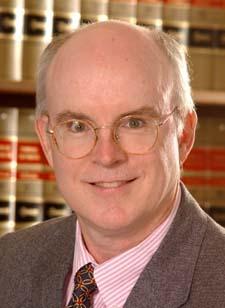On Tuesday morning, Loyola law professor Bill Quigley and the rest of the Occupy New Orleans legal team won a temporary restraining order in federal court for the movement, allowing the protestors to move back into Duncan Plaza.
They argued the protest was protected under the First Amendment, according to Quigley, who is confident the ruling will stand.
If the ruling stands, the protest will be protected under the First Amendment that grants U.S. citizens the right to peaceably assemble and the right to freedom of speech.
The city, after threatening a shutdown for several days, came into the encampment at 3:30 a.m. Tuesday, Dec. 6 and forced the protesters out. They were kicked out while the issue of the restraining order was pending.
Protestors were not allowed to gather their things, according to Occupy New Orleans activist Kezia Kamenetz, and tents and belongings were destroyed as the sanitation team cleaned the plaza.
The encampment has greatly reduced in size after the forced eviction, but those involved are not concerned.
John Clark, philosophy professor, says many new and wonderful directions are emerging from the movement.
According to Clark, there are plans to start decentralized occupy sites in neighborhoods around town.
He says there is also talk of a Loyola and Tulane political organization based on the movement’s ideas.
Kamenetz has been involved in focusing on the specific issue of housing.
The movement staged a disruption at the Sheriff’s Auction recently, where protestors urged people not to buy foreclosed homes and buildings, successfully saving homes from confiscation.
Kezia notes that the networking provided by the encampment has been invaluable, and will now allow the movement to go beyond the Duncan Plaza.
“So many people have met each other that wouldn’t normally get to meet. It has brought people together who are interested in being active in issues,” she said.
Karin Curley can be reached at [email protected]






